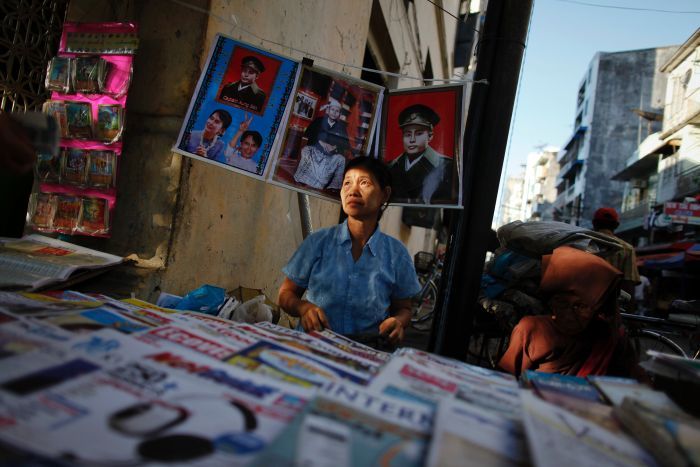Burma has decided to abolish pre-publication censorship of the country’s media, the information ministry has announced.
The Press Scrutiny and Registration Department (PSRD) said that as of Monday, reporters would no longer have to submit their work to state censors before publication.
However, strict laws remain in place which could see journalists punished for what they have written.
Burma has kept tight control over all aspects of its media for some 50 years.
But the civilian government has been gradually easing restrictions since taking office last year.

“Censorship began on 6 August 1964 and ended 48 years and two weeks later,” Tint Swe, head of the PSRD, told AFP news agency on Monday.
“Any publication inside the country will not have to get prior permission from us before they are published.
“From now on, our department will just carry out registering publications for keeping them at the national archives and issuing a license to printers and publishers,” he said.
Tint Swe said the likelihood of permission being granted for private newspapers to be set up was “closer than before” and could happen after a new media law is enacted.
A ministry official told AFP films would still be subject to censorship.
Wai Phyo, editor of the Weekly Eleven journal, told Reuters the move was “a big improvement on the past”, but that editors would now be under increasing pressure to ensure their publications remained legal.
In the past, entire newspapers have been shut because of their reports and many reporters have been jailed.
But in recent months, journalists had been given guidelines allowing them to write about controversial topics, something that would have been unthinkable under the previous military rule.
Some 300 newspapers and magazines covering less sensitive issues had already been given permission to print without prior censorship and restrictions were lifted on 30,000 internet sites, allowing users unrestricted access to political content for the first time.
In October last year, Tint Swe said censorship should be abolished as it was incompatible with democratic practices, while warning that all publications should accept the responsibilities that go with press freedom.
